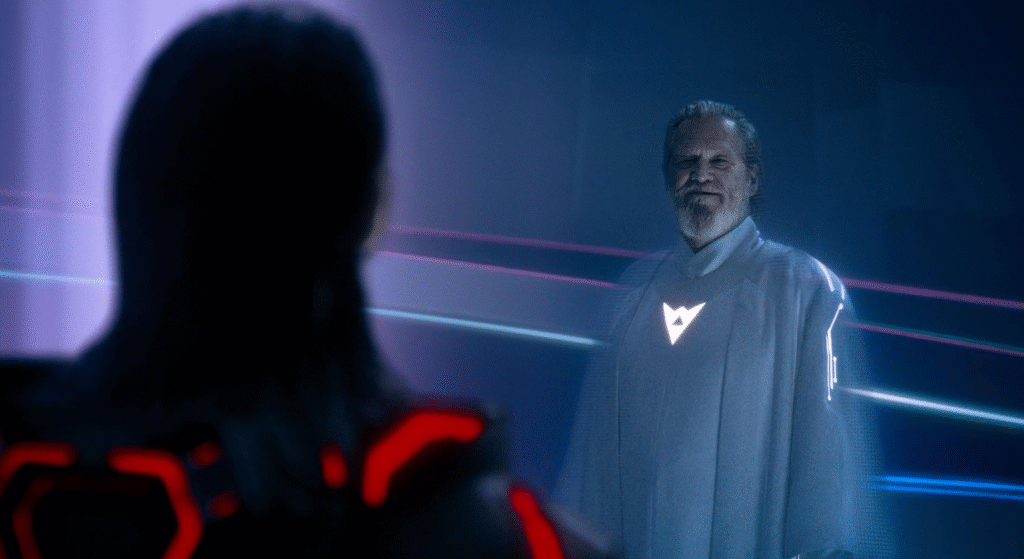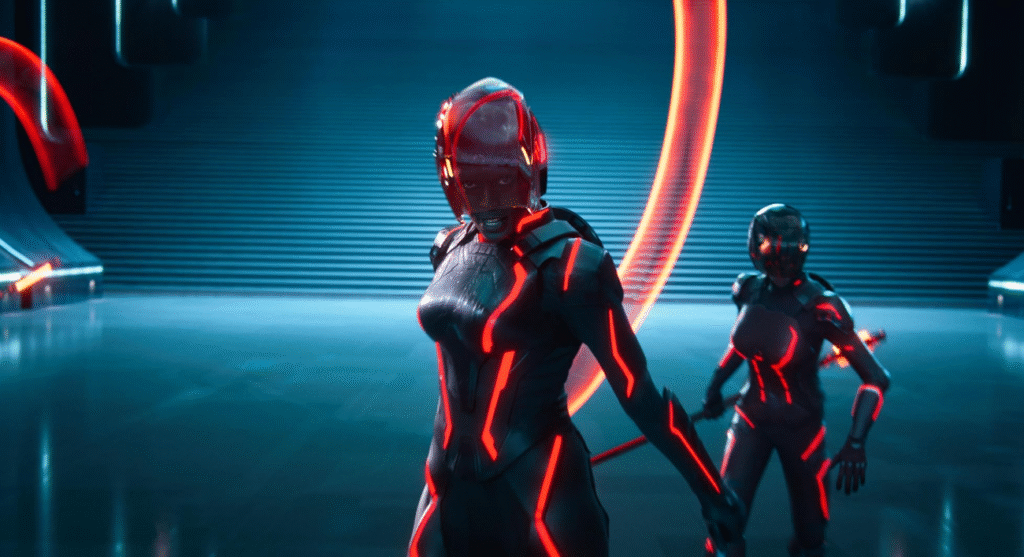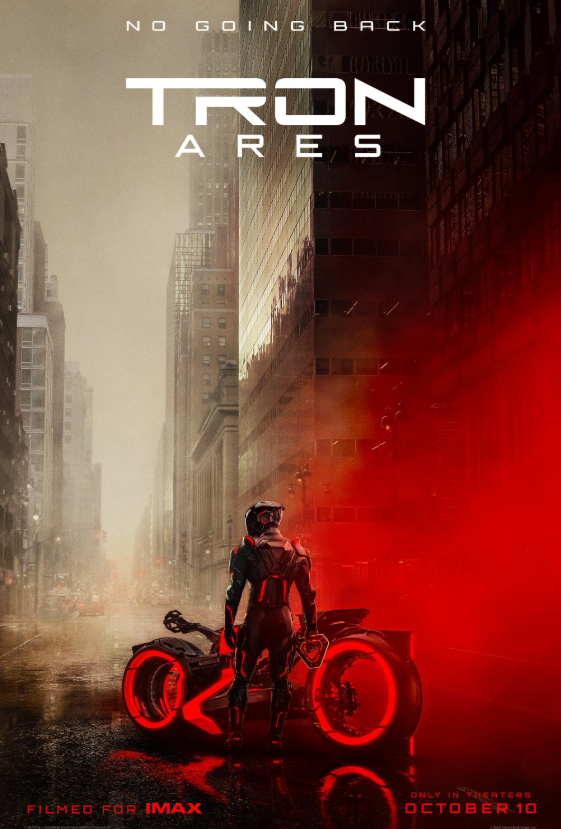A Minecraft Movie — A Blocky Tale with Heart, but Not Without Cracks
Adapting a video game into a film has always been a ...

There’s something about returning to the TRON universe that always feels like stepping into a familiar dream. One stitched together with neon, sound, and a wild imagination. As someone who has held a soft spot for Tron (1982) and still considers Tron: Legacy the standout of the franchise, I watched Tron: Ares hopeful, a little nostalgic, and honestly curious to see what new life director Joachim Rønning would breathe into this world.
What becomes clear almost immediately is that Ares is the most visually expressive chapter yet. It’s a film that bursts with colour and confidence, fully aware that its greatest weapon is spectacle. Even from the haze of a lightly packed theatre, the light cycles roar with a kind of edible vibrancy so bright and immersive you almost feel the screen melting into the air around you.
The score is thunderous, hypnotic, and undeniably alive. In those moments, Ares feels transcendent cinema as sensation.
But the TRON franchise has always lived between two worlds. The glowing fantasy of the Grid, and the fragile humanity of the people connected to it. And this is where Ares also falters.

The story centres on the Permanence Code, Kevin Flynn’s lost creation that promises a bridge between digital life and the real world. Two tech giants, ENCOM, led by the compassionate Eve Kim (Greta Lee), and Dillinger Systems, under the reckless Julian Dillinger (Evan Peters) are locked in a race to control it. And then there’s Ares himself, portrayed by Jared Leto, a highly sophisticated program stepping into the real world with the wide-eyed yearning of a cybernetic Pinocchio.
I’ll be honest, hearing that Leto was cast dulled my excitement a bit. His past performances have often felt distracting or overly stylised. But here, surprisingly, he turns in something more grounded or maybe not soulful, but controlled, even compelling in flashes. He holds his own in scenes that demand intensity, especially opposite Greta Lee, who gives the film its quiet emotional heartbeat.
Still, performance alone can’t solve the film’s deeper ache. The truth is Tron: Ares is stunning to watch but hard to feel. For all the beautiful chaos, the film never quite finds its emotional center. The characters move with purpose, but rarely with intimacy, and the script seems far more comfortable cracking quips and staging battles than slowing down long enough to nurture the humanity it wants us to invest in. The stakes are high, the ideas ambitious, and yet the soul of it all slips through your fingers.

There’s also a persistent silliness threaded into the narrative. The kind that makes you tilt your head and wonder why certain scenes play out with such carefree disregard for logic. Corporate militias appearing out of thin air, ENCOM operating like the world’s least-secured tech giant, homages to Akira and The Terminator that feel more clunky than clever. None of it breaks the movie, but it does break immersion. And yet, interestingly, I never found myself bored. Not once. Rønning’s direction carries a rhythm that keeps the film breathing, even at its most chaotic. When the visuals and score work in harmony, the experience is genuinely thrilling. For two hours, the film grabs your attention with both hands.
But as soon as the credits roll, something happens. The enchantment evaporates. The details blur. And all that remains is the memory of colour and sound.
Tron: Ares is a beautiful machine, sleek, loud, dazzling, but one still searching for the soul that made its predecessors linger long after the screen went dark. It’s worth experiencing, especially at the cinema. Just don’t expect it to follow you home.

Leave A Reply